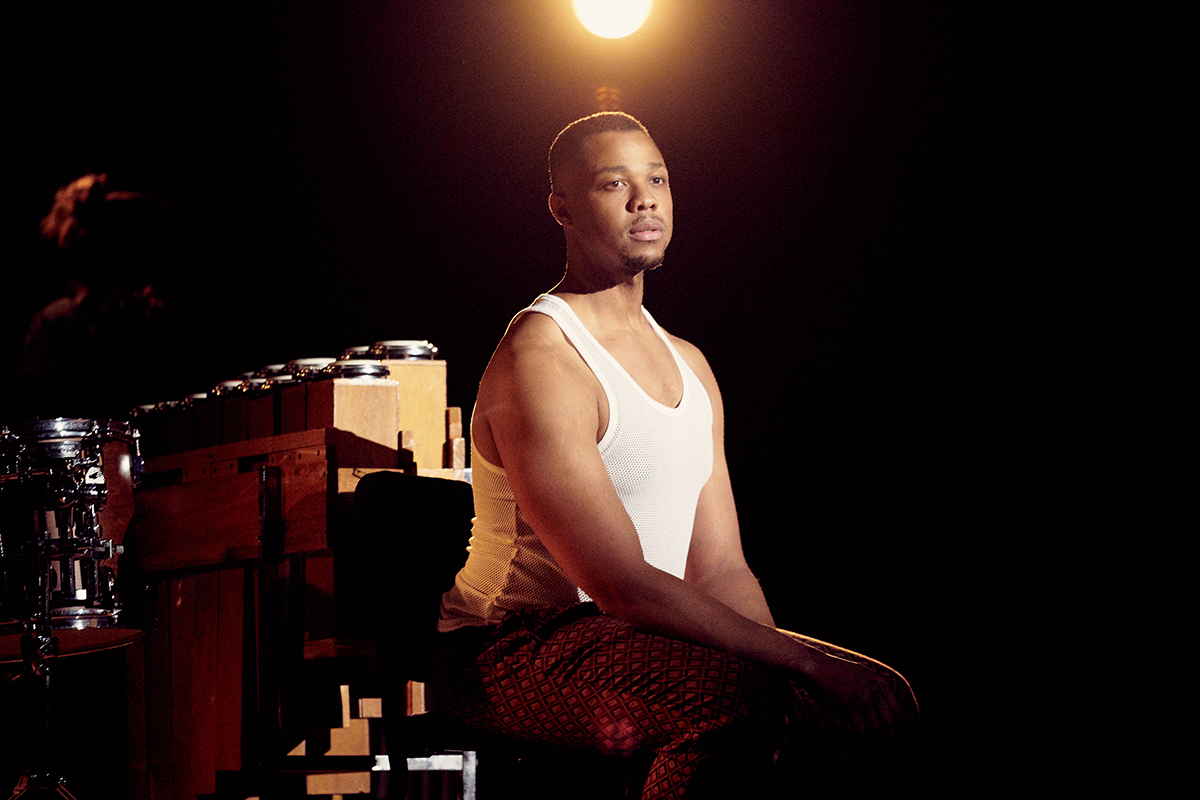Davóne Tines’s instrument is giving him problems. He has performed flawlessly on major international stages, but on this warm September day in a studio in lower Manhattan, the musician is having some unusual difficulties. The culprit is camembert. Opera singers are told to avoid dairy products for its alleged mucus-inducing properties, but a cheese tray at a benefit Tines attended the night before was too tempting.
After some world-class throat clearing, the 32-year-old fortunately reverts to form and dazzles the assembled crowd with a voice that puzzled his vocal teachers at the Juilliard School with its extraordinary range from a feel-it-the-pit-of-your-stomach bass baritone to a goosebump-inducing falsetto. Tines, who describes himself on his Instagram account as “young, gifted and Black” is among the most compelling classically trained singers working in America today. While steeped in the canon, he is more interested in contemporary work. He recently helped create and starred in The Black Clown, a 70-minute work of music and movement adapted from the Langston Hughes poem of the same name. It was such a sought-after ticket during its limited run in New York that one of Broadway’s top theater producers threatened to fire his assistant if he couldn’t get a ticket. (A job-saving ticket was procured.)
The Black Clown was born out of Tines’s frustration. After he graduated from Harvard University in 2009 he was working in Washington, D.C. as a freelance arts administrator and singing in a choir at the National Shrine on Sundays. He enjoyed the “high-quality music-making” involved in singing classical Christian repertoire, but “I really wanted to sing something that was soulful and whimsical and something that I deeply connected to,” he says. In 2011, he emailed composer Michael Schachter, a friend from college (they met in choir) and they began the seven-year collaboration on the The Black Clown.
Performed in front of audiences that Tines says are largely “liberal white elites,” the piece feels like a challenge. It begins with Tines gazing directly at individual audience members repeating, with varying inflection and intensity the poem’s opening line: “You laugh,/ Because I’m poor and black and funny—/ Not the same as you.”

After the repetition of those lines, “you feel a tension immediately take place,” Tines says. “And from that tension there’s a connection, and from that connection we can have a bridge to a story of sharing experience. And once we share an experience we can perhaps look at each other with a little more empathy.”
A charismatic and commanding artist who carries his towering 6’ 2” body lightly, Tines is poised for a major career. He has a packed year ahead of prestigious bookings, a combination of classical and new works (Schumann’s Oratorio Das Paradies und die Peri with the Cincinnati Orchestra and in London, Prisoner of the State, with the BBC Symphony Orchestra) and a planned recital at Carnegie Hall. Asked if he’s made peace with classical works, Tines sighs and says, “I’m just doing what black people have always done, which is to see the resources around them, put them together and use them for moving forward.”
- The 100 Most Influential People of 2024
- Coco Gauff Is Playing for Herself Now
- Scenes From Pro-Palestinian Encampments Across U.S. Universities
- 6 Compliments That Land Every Time
- If You're Dating Right Now, You're Brave: Column
- The AI That Could Heal a Divided Internet
- Fallout Is a Brilliant Model for the Future of Video Game Adaptations
- Want Weekly Recs on What to Watch, Read, and More? Sign Up for Worth Your Time